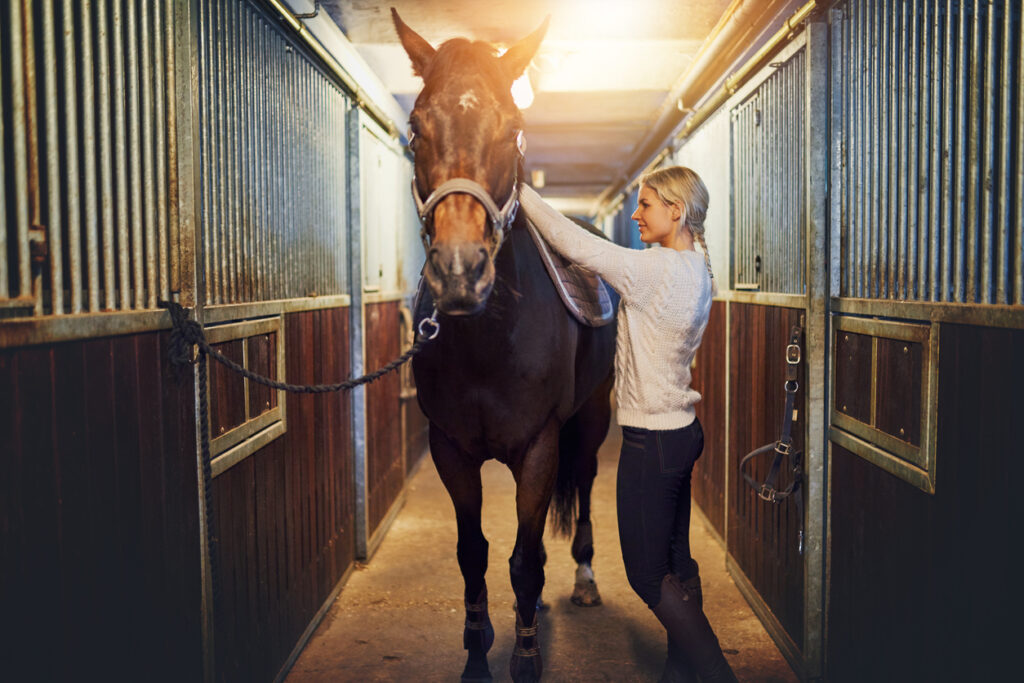Not all learning has to be done in a classroom – sometimes the best way for employees to learn new skills is by being exposed to new experiences.
The current uncertainty and ambiguity in business requires leaders to be more agile and operate out of their comfort zone. Experiential learning has been growing in popularity as organisations recognise the importance of leaders having an experience and making sense of it.
Experiential learning can take many different forms, from on the job experiences to more formal training and overseas assignments, and each learning experience can increase emotional and social intelligence.
On the job experiences
Much of what we learn lies in our experience. It stands to good reason then that the more varied a career you have, the more opportunity you have to learn along the way.
However, simply having a challenging experience as part of your career progression is not enough in itself.
Employees need time for reflection and support to help make sense of the challenge and the associated learning, both in the moment and after the event to explore how they apply the learning to future situations. Yet time is at a premium in a busy working day.
Care should be taken to ensure that employees are adequately supported through challenging on the job experiences to increase self-awareness and resilience, minimise stress and burnout, and to explore how they can apply the skills learned to future roles.
Developing emotional intelligence
In education and training, the balance is beginning to shift from being primarily cerebral towards incorporating more experiential approaches fostering the growth of more balanced and holistic leaders.
Daniel Goleman, the renowned leading psychologist on emotional intelligence, explains: “Great leaders move us. They ignite our passion and inspire the best in us. When we try to explain why they are so effective, we speak of strategy, vision, or powerful ideas. The reality is much more primal: great leadership works through the emotions.”
The experience is so visceral that leaders continue to draw on the learning years later. Clients report increased self-confidence, greater trust, team alignment, more open conversations to work through differences and much more.
The uncertainty of learning experientially can invoke strong emotions and move people to action. Supported appropriately, these challenging work experiences can increase self-awareness as well as emotional resilience.
Employee volunteering programmes
One form of experiential learning that certainly does this is placement of employees overseas on short to long-term assignments to use their skills to address societal issues. Companies are increasingly seeing the value of these placements with companies such as GSK, EY and Microsoft adopting this approach.
These assignments create value for the non-profit organisations who benefit from the corporate leaders’ experience, for the individual who operates cross-culturally and out of their comfort zone, and for the overall organisation who benefits from the employee’s greater engagement and energy on return to the workplace. As such, it’s a win-win-win.
GSK’s award-winning Pulse programme places 100 employees every year for 6-12 months in an overseas assignment to NGO health projects.
In their Pulse 2015 Annual Impact Report, they explained the value: “Since returning from their assignments, 91% of our 2015 volunteers are doing something differently back at GSK as a result of their PULSE experience. They are able to do more with less, employ better cultural agility, and embody a greater focus on the patient.”
Equine assisted leadership
The above examples focus on developing the individual, but when looking to align teams through behavioural change, combining executive and team coaching with experiential equine assisted leadership programmes has been shown to be a success.
What is clear from all the examples is that learning from experience, if supported appropriately, is hugely beneficial to both the organisations and the employees.
Equine assisted leadership involves leading horses on the ground, sometimes one person to a horse and sometimes working as a team.
The horses respond based on subtle nuances of non-verbal communication, highlighting default patterns of behaviour that may be unconscious to the leader.
The feedback from the horse is instant. They either come with you or refuse to move, depending on how you show up, and it can change in an instant.
The experience is so visceral that leaders continue to draw on the learning years later. Programme attendees have report increased self-confidence, greater trust, team alignment, more open conversations to work through differences and much more.
Jorge Ribeiro, Head of IT Infrastructure at Telefonica explained: “I am now more interested in achieving collective results rather than individual success. I am now more careful when taking decisions that might have a wider impact. I have more empathy, not only with the rest of the team but with others in general.”
Applying the learning
Experiential learning can take many forms, from on the job training, experiential training programmes to longer overseas assignments.
Organisations need to consider which approach is right for them and this may depend on a variety of factors such as budget, developing individuals or developing teams on a specific project.
A blend of approaches can be highly beneficial for organisations who want to develop leaders to have the resilience to work under pressure in unknown situations, the flexibility to adapt to different ways of working and the self-awareness and self-confidence to lead their organisation forward in uncertainty.
Whichever approach organisations adopt, skilled facilitation and debriefing of experiential learning is crucial to allow greater insights to be explored and reflected upon, so that changes in behaviour can occur.
What is clear from all the examples is that learning from experience, if supported appropriately, is hugely beneficial to both the organisations and the employees and in some cases, it can have a positive societal benefit as well.
Want to read more on this topic? Check out Experiential training to disturb thinking and shift mindsets.
Not all learning has to be done in a classroom – sometimes the best way for employees to learn new skills is by being exposed to new experiences.
The current uncertainty and ambiguity in business requires leaders to be more agile and operate out of their comfort zone. Experiential learning has been growing in popularity as organisations recognise the importance of leaders having an experience and making sense of it.
Experiential learning can take many different forms, from on the job experiences to more formal training and overseas assignments, and each learning experience can increase emotional and social intelligence.
On the job experiences
Much of what we learn lies in our experience. It stands to good reason then that the more varied a career you have, the more opportunity you have to learn along the way.
However, simply having a challenging experience as part of your career progression is not enough in itself.
Employees need time for reflection and support to help make sense of the challenge and the associated learning, both in the moment and after the event to explore how they apply the learning to future situations. Yet time is at a premium in a busy working day.
Care should be taken to ensure that employees are adequately supported through challenging on the job experiences to increase self-awareness and resilience, minimise stress and burnout, and to explore how they can apply the skills learned to future roles.
Developing emotional intelligence
In education and training, the balance is beginning to shift from being primarily cerebral towards incorporating more experiential approaches fostering the growth of more balanced and holistic leaders.
Daniel Goleman, the renowned leading psychologist on emotional intelligence, explains: “Great leaders move us. They ignite our passion and inspire the best in us. When we try to explain why they are so effective, we speak of strategy, vision, or powerful ideas. The reality is much more primal: great leadership works through the emotions.”
The experience is so visceral that leaders continue to draw on the learning years later. Clients report increased self-confidence, greater trust, team alignment, more open conversations to work through differences and much more.
The uncertainty of learning experientially can invoke strong emotions and move people to action. Supported appropriately, these challenging work experiences can increase self-awareness as well as emotional resilience.
Employee volunteering programmes
One form of experiential learning that certainly does this is placement of employees overseas on short to long-term assignments to use their skills to address societal issues. Companies are increasingly seeing the value of these placements with companies such as GSK, EY and Microsoft adopting this approach.
These assignments create value for the non-profit organisations who benefit from the corporate leaders’ experience, for the individual who operates cross-culturally and out of their comfort zone, and for the overall organisation who benefits from the employee’s greater engagement and energy on return to the workplace. As such, it’s a win-win-win.
GSK’s award-winning Pulse programme places 100 employees every year for 6-12 months in an overseas assignment to NGO health projects.
In their Pulse 2015 Annual Impact Report, they explained the value: “Since returning from their assignments, 91% of our 2015 volunteers are doing something differently back at GSK as a result of their PULSE experience. They are able to do more with less, employ better cultural agility, and embody a greater focus on the patient.”
Equine assisted leadership
The above examples focus on developing the individual, but when looking to align teams through behavioural change, combining executive and team coaching with experiential equine assisted leadership programmes has been shown to be a success.
What is clear from all the examples is that learning from experience, if supported appropriately, is hugely beneficial to both the organisations and the employees.
Equine assisted leadership involves leading horses on the ground, sometimes one person to a horse and sometimes working as a team.
The horses respond based on subtle nuances of non-verbal communication, highlighting default patterns of behaviour that may be unconscious to the leader.
The feedback from the horse is instant. They either come with you or refuse to move, depending on how you show up, and it can change in an instant.
The experience is so visceral that leaders continue to draw on the learning years later. Programme attendees have report increased self-confidence, greater trust, team alignment, more open conversations to work through differences and much more.
Jorge Ribeiro, Head of IT Infrastructure at Telefonica explained: “I am now more interested in achieving collective results rather than individual success. I am now more careful when taking decisions that might have a wider impact. I have more empathy, not only with the rest of the team but with others in general.”
Applying the learning
Experiential learning can take many forms, from on the job training, experiential training programmes to longer overseas assignments.
Organisations need to consider which approach is right for them and this may depend on a variety of factors such as budget, developing individuals or developing teams on a specific project.
A blend of approaches can be highly beneficial for organisations who want to develop leaders to have the resilience to work under pressure in unknown situations, the flexibility to adapt to different ways of working and the self-awareness and self-confidence to lead their organisation forward in uncertainty.
Whichever approach organisations adopt, skilled facilitation and debriefing of experiential learning is crucial to allow greater insights to be explored and reflected upon, so that changes in behaviour can occur.
What is clear from all the examples is that learning from experience, if supported appropriately, is hugely beneficial to both the organisations and the employees and in some cases, it can have a positive societal benefit as well.
Want to read more on this topic? Check out Experiential training to disturb thinking and shift mindsets.








